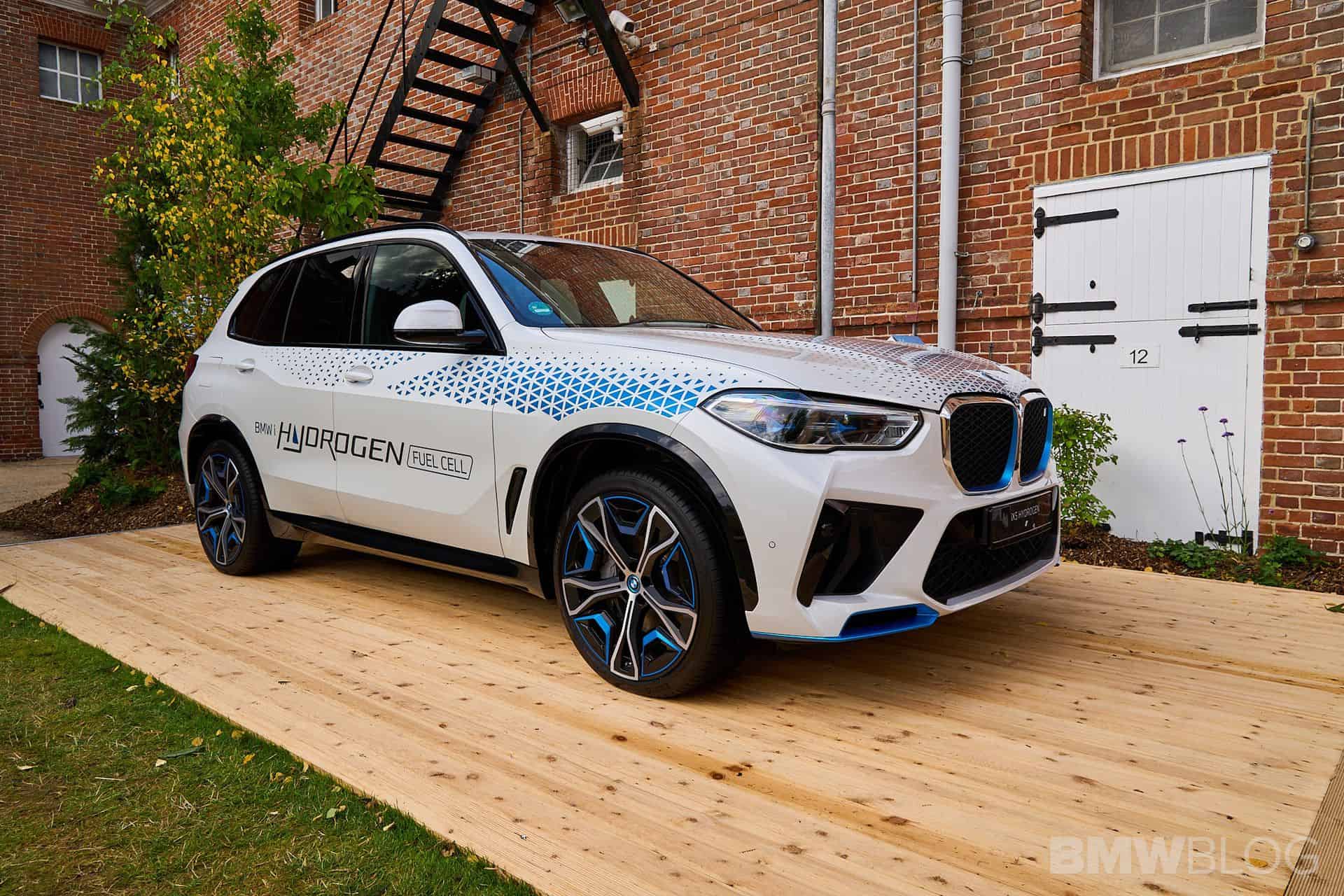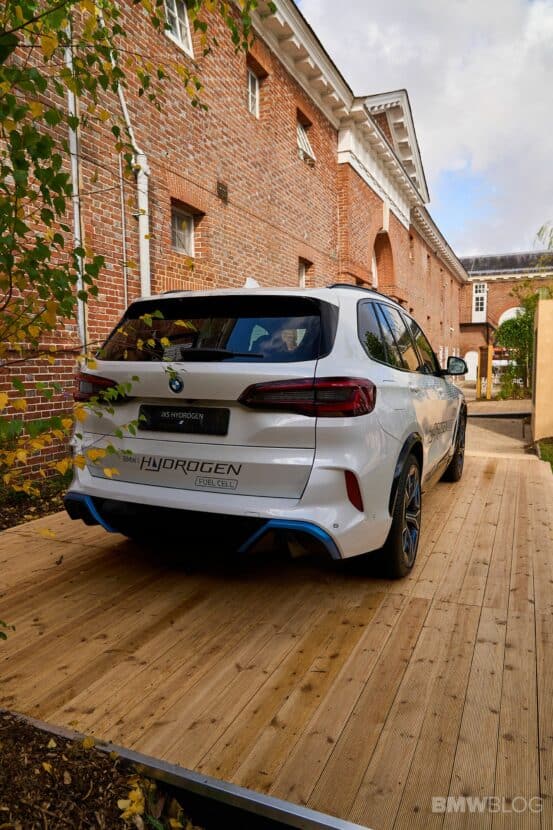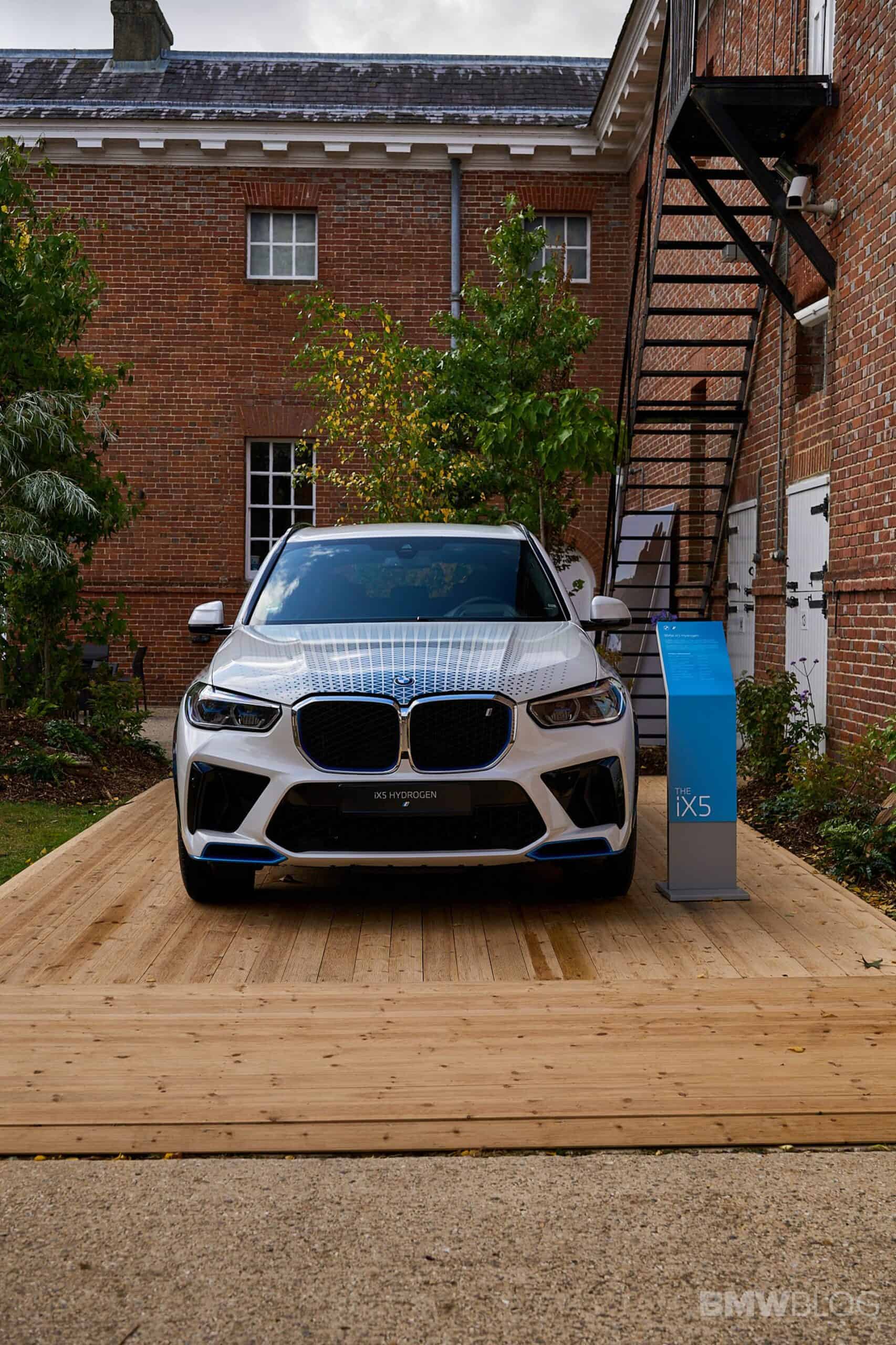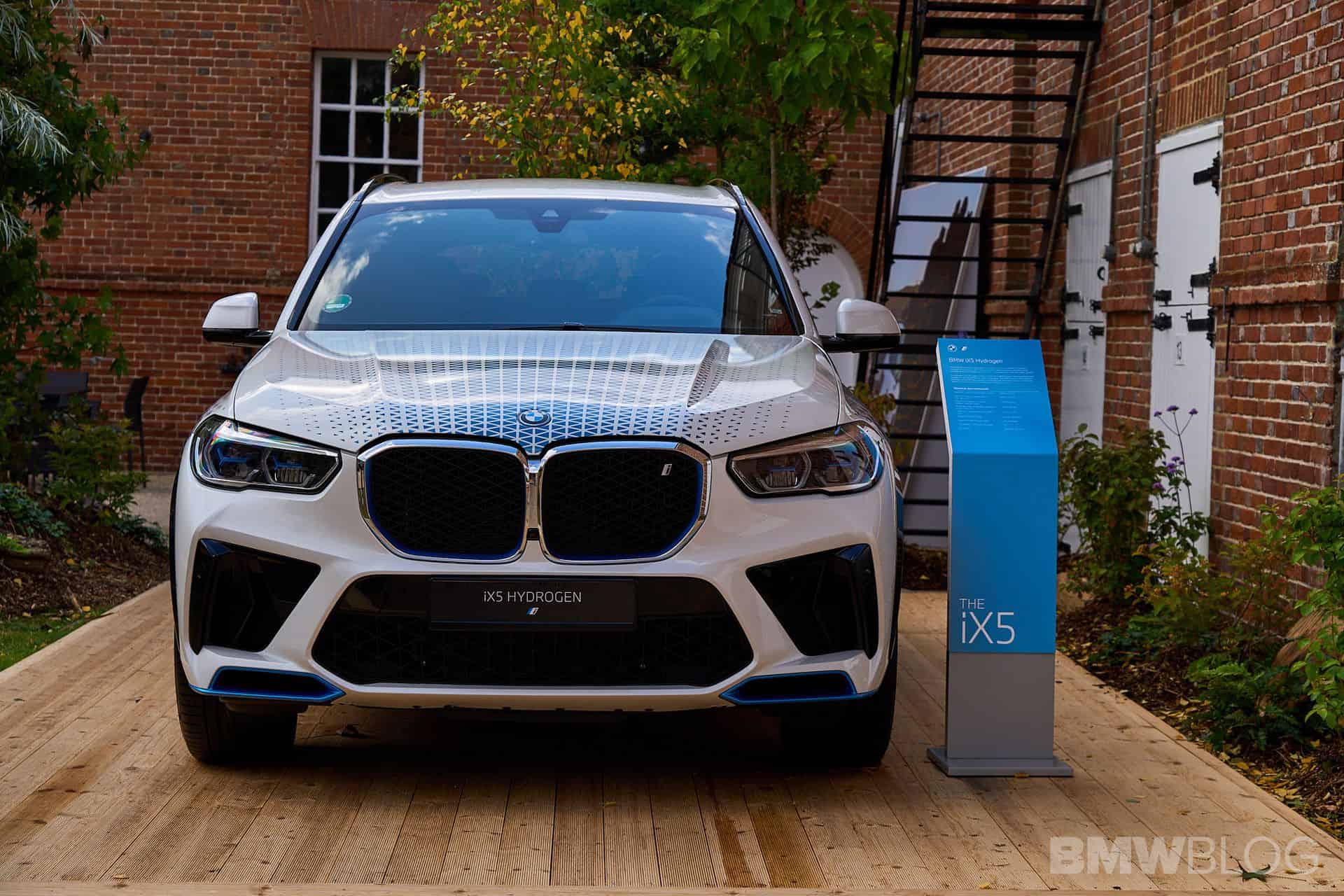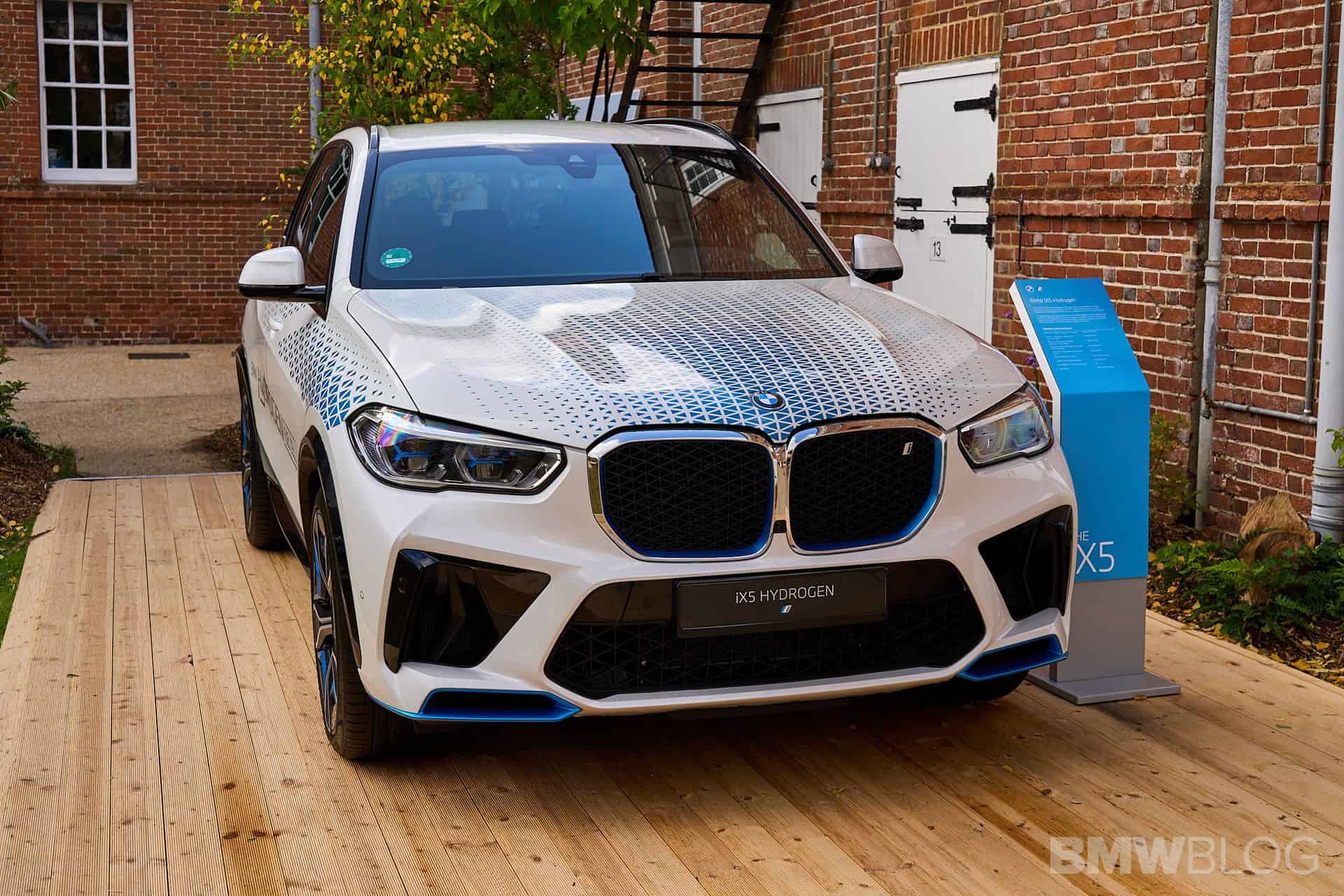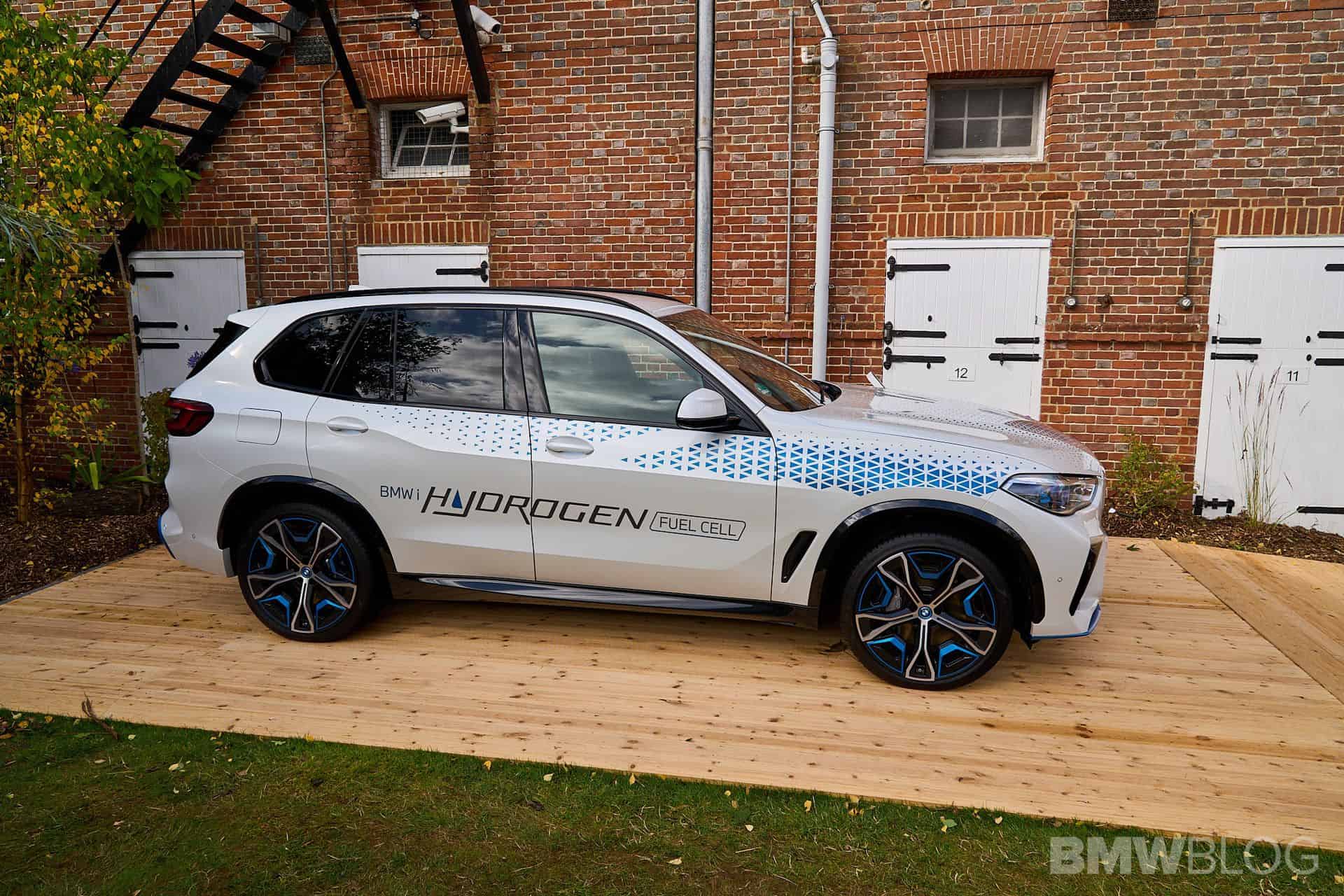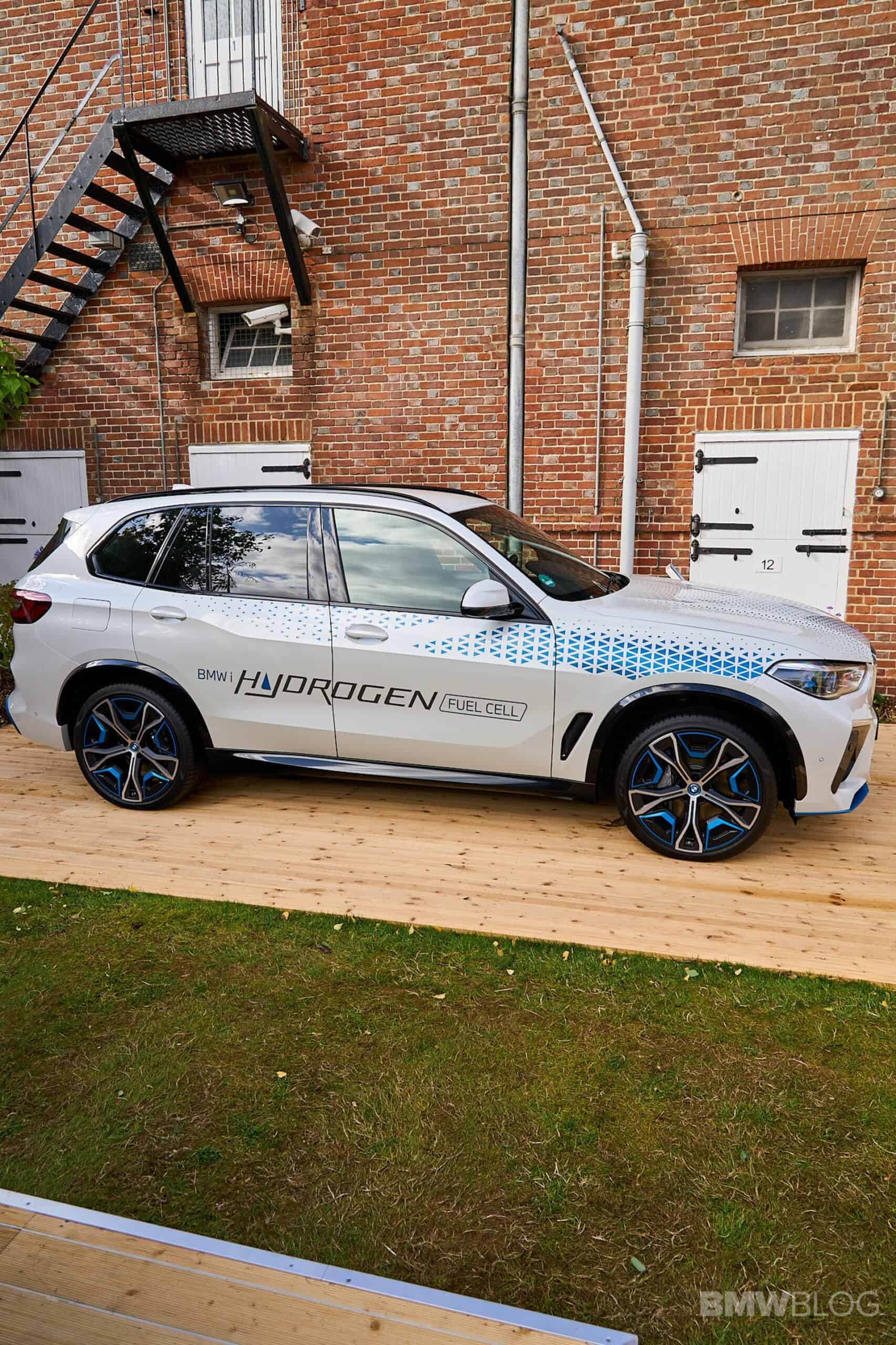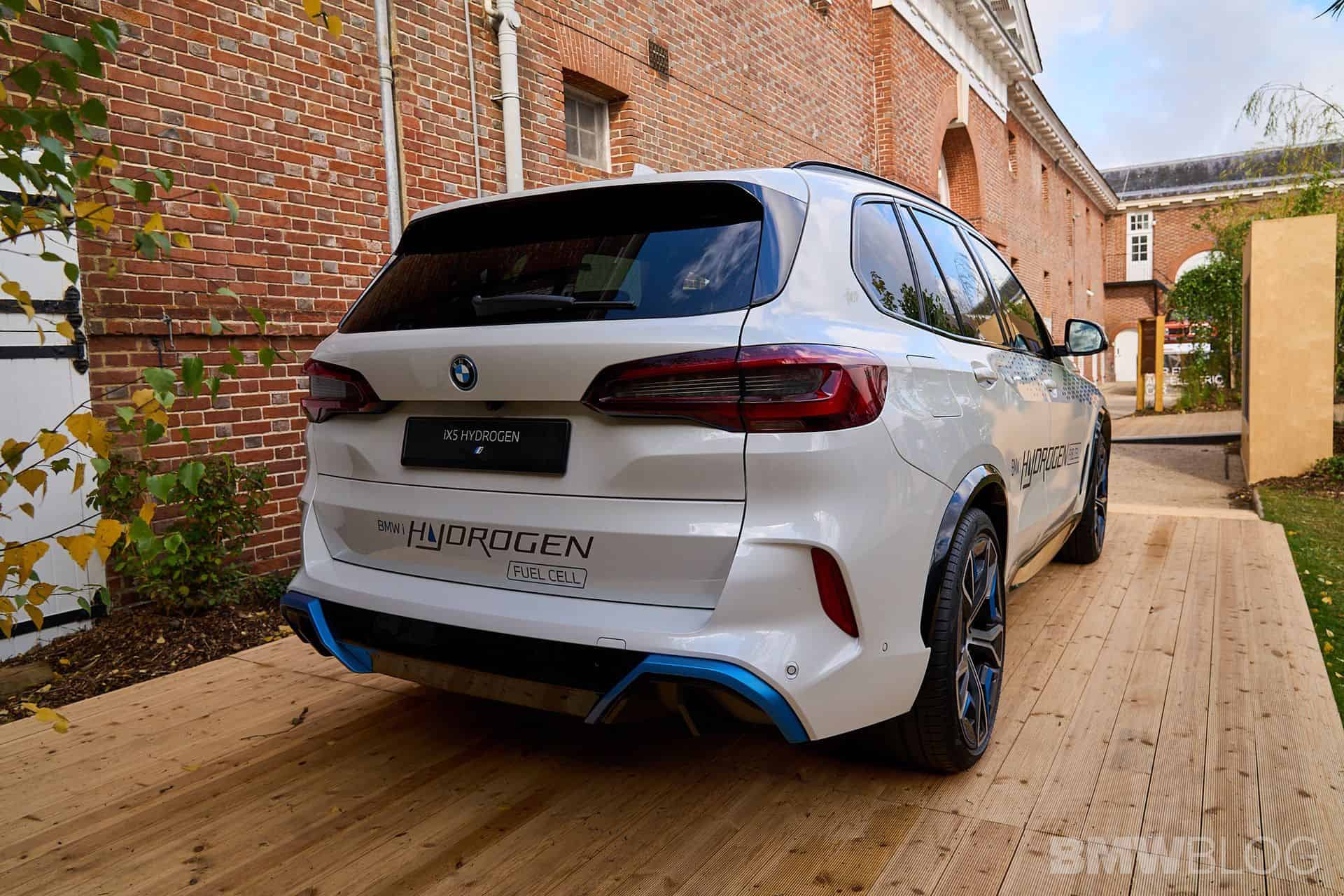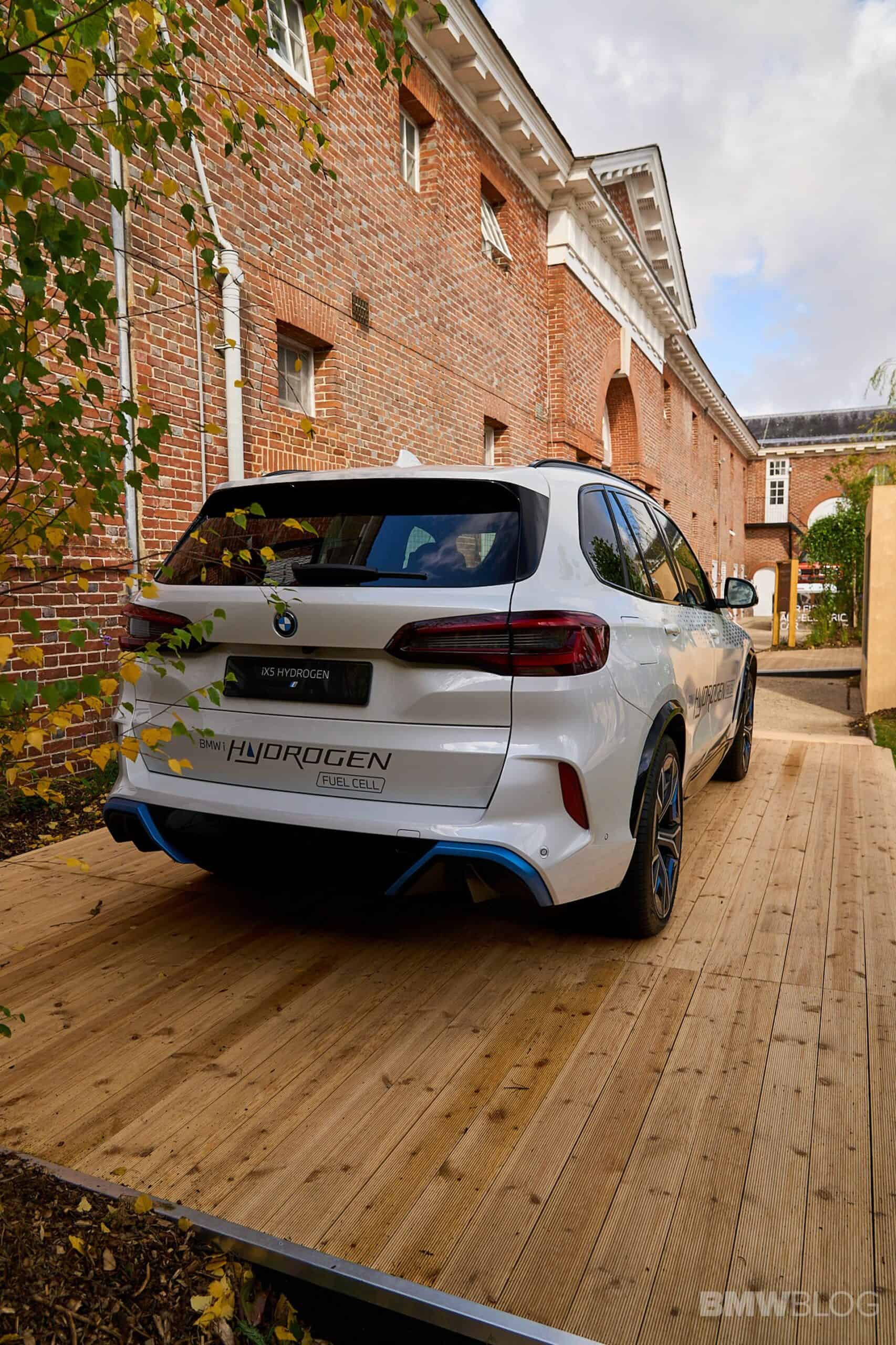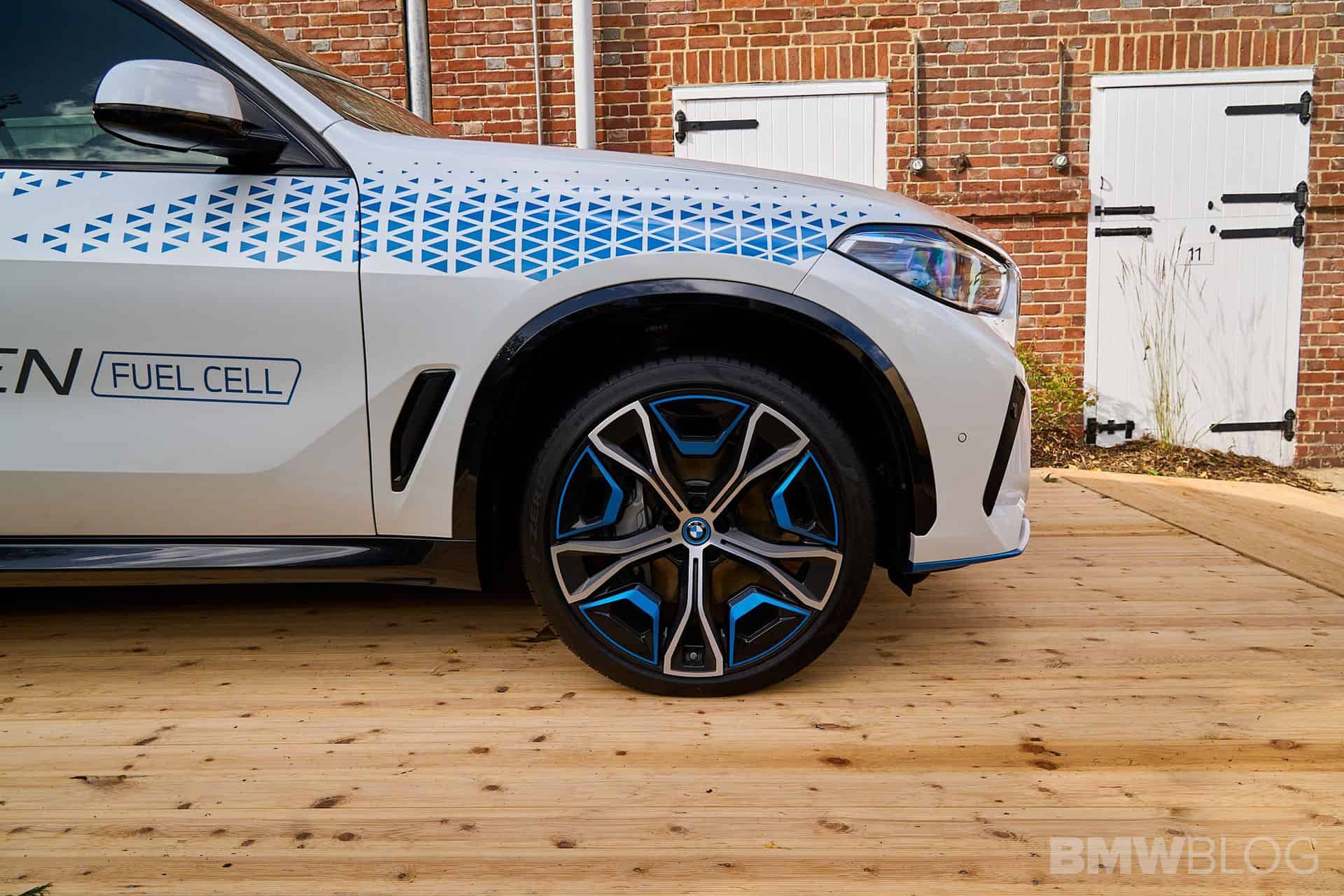In a sea of battery-powered SUVs, the BMW iX5 dares to be different. Not with its design since it has just about the same look as the conventional X5, but with what powers it. Shown at the 2023 Goodwood Festival of Speed alongside many of the company’s regular electric vehicles, the zero-emission X5 isn’t available to buy as fewer than 100 units are being made strictly for testing purposes. It was developed over the course of four years and signals the luxury brand’s commitment to hydrogen technology.
The FCEV variant hides its new tech underneath familiar clothing since BMW didn’t stray away from the overall appearance of the fourth-generation X5 prior to its recently unveiled Life Cycle Impulse. Unlike earlier attempts such as the hydrogen-fueled V12, the posh SUV eschews the combustion engine in favor of a fuel cell to mirror the 5 Series Gran Turismo prototype introduced in 2015. Naturally, the technology has greatly progressed in the last eight years, and BMW is determined to launch a production hydrogen vehicle later this decade.
The iX5 boasts a pair of carbon fiber tanks that store six kilograms of compressed hydrogen (at 700-bar pressure). One sits where the transmission tunnel is on a regular X5 while the other is positioned below the rear seats. These tanks use fuel cells sourced from Toyota and create a “T” shape in the floor of the vehicle. As for specs, we’ve been told the regular output is 170 hp but can temporarily increase to 374 hp for maximum acceleration performance.
With the tanks full, BMW estimates the vehicle can cover 300 miles (nearly 500 kilometers). A highly possible production vehicle will offer greater range, according to Juergen Guldner, the man in charge of BMW’s hydrogen efforts. We sampled the iX5 earlier this year and concluded it behaves pretty much like a battery EV featuring rear-wheel drive while being just as silent. The test vehicle tipped the scales at around 5,512 pounds (2,500 kilograms), so roughly as much as the X5 xDrive50e plug-in hybrid.
The company is serious about launching a hydrogen-fueled car you can actually buy. Sales chief Pieter Nota said it could happen by 2025 while chairman Oliver Zipse has pledged to have one on sale before 2030. The only other automaker actively interested in making fuel cell EVs viable is BMW’s partner Toyota.


